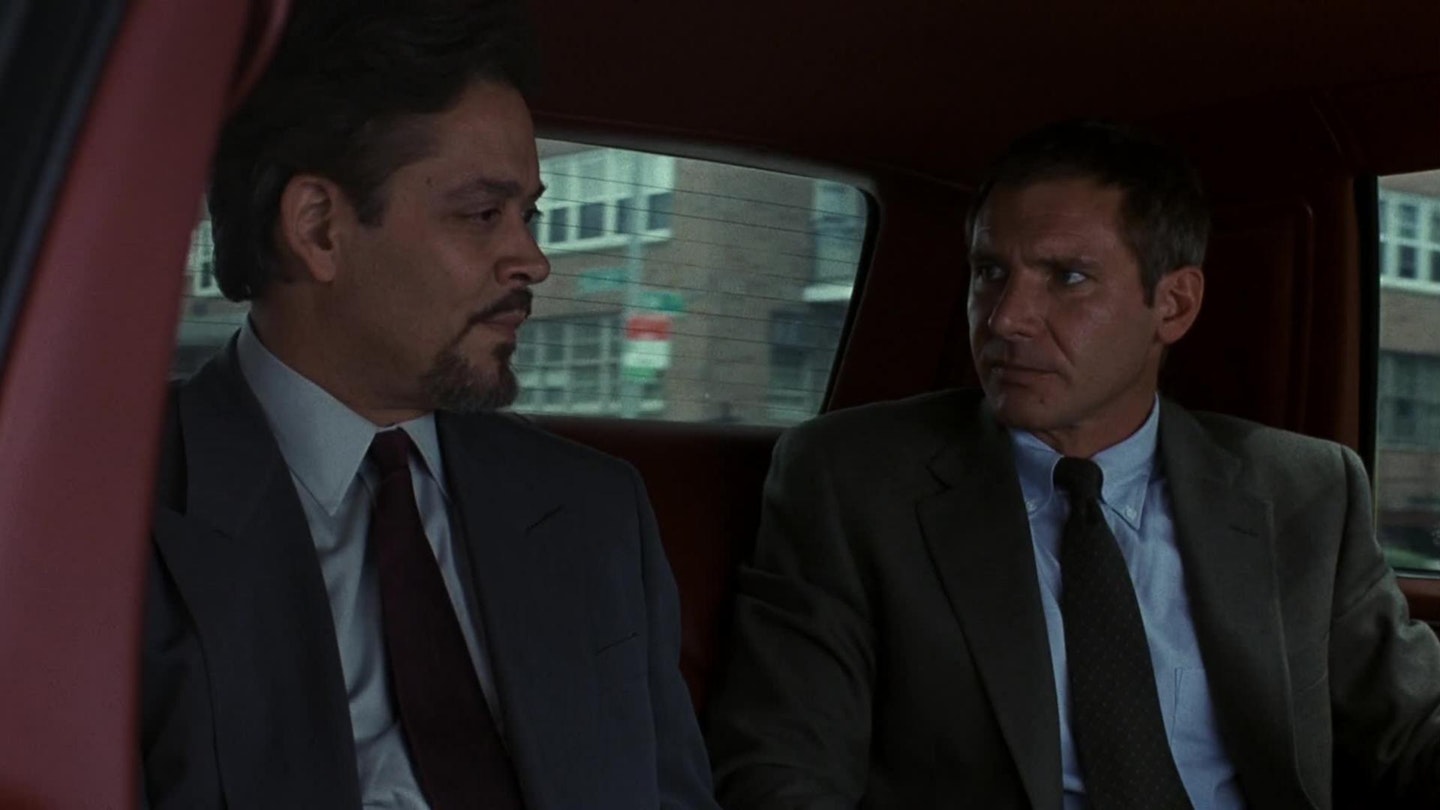A well-rigged whodunit based on the bestseller by Scott Turrow, that pretends to investigate the various political manipulations that haunt your average district attorney’s office (would it even lead to murder?) but is in truth about the wages of sin (that Harrison Ford’s sturdy family man Rusty Sabich is doing some extracurricular bonding with Greta Scacchi’s fast-tracked legal wannabe).
Ford is a good call as the stern Sabich, his attitude is like his haircut, cut to the temple. His innocence, deliciously, is never fully clear, but as he’s played by Ford we can’t help but presume him innocent, even if he has wronged his winsomely devoted wife Bonnie Bedelia. His boss, the evidently corrupt Raymond Horgan (played with smarmy leverage by the not-seen-enough Brian Dennehy) could be playing him a deuce, being fully stacked with his own political machinations and sexual indelicacies. The finger is soon pointing in every direction, but it ends up with Sabich in the dock, amid a flurry of fingerprints, sperm samples, carpet fibres and that elusive murder weapon.
The second half is some solid courtroom action, mainly because the great Raul Julia steps centre stage to lead the defense, while Fords gets to pout with internalised anguish, and Paul Winfield’s inevitably stony-faced judge presides over the knotty case. Director Alan J. Pakula is a modern master of the broad-shouldered American thriller (he’s responsible for All The President’s Men, Sophie’s Choice and Klute). Here he knows well enough it is well-dressed pulp, so works on the looming camerawork and long shadows, letting his actors push to the borders of melodrama while not allowing them to throw the game. He also does a good job bouncing proceedings back and forth through a myriad of flashbacks and sideshows. The denouement should be murky to all but lucky guessers and Hercule Poirot (indeed, Agatha would adore its crimes of passion disguising themselves as politics) and when it hits it signs off an expertly handled thriller with aplomb.
